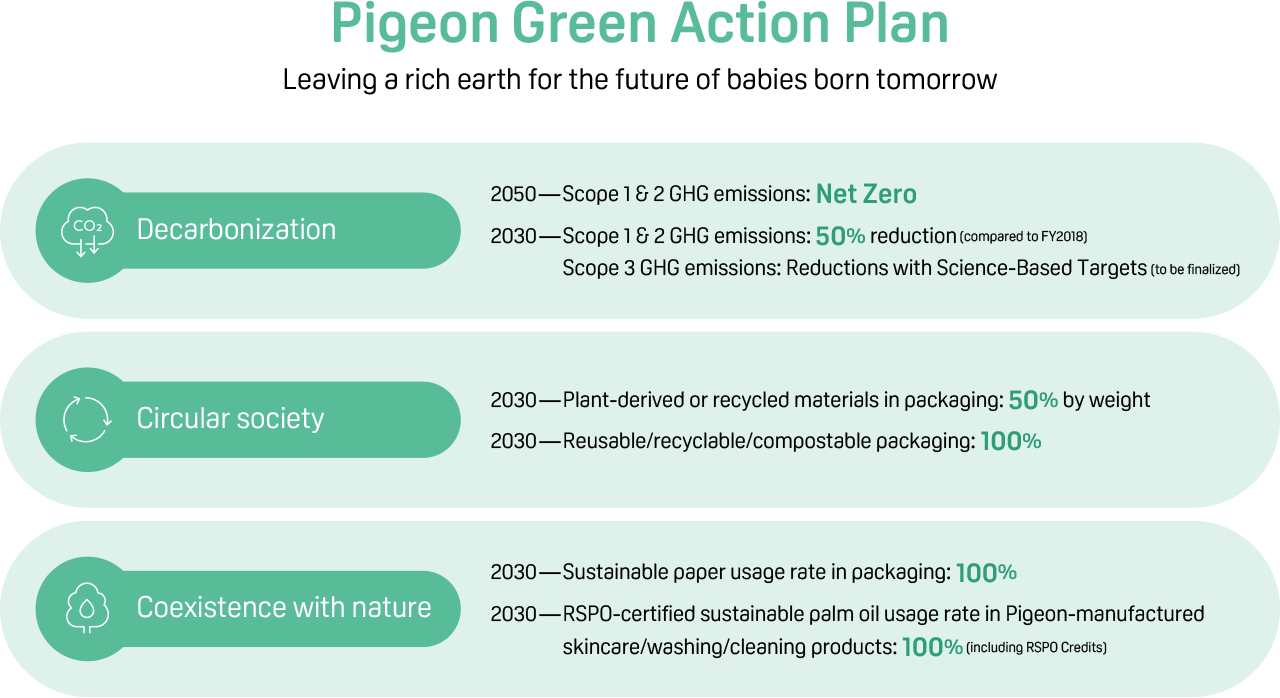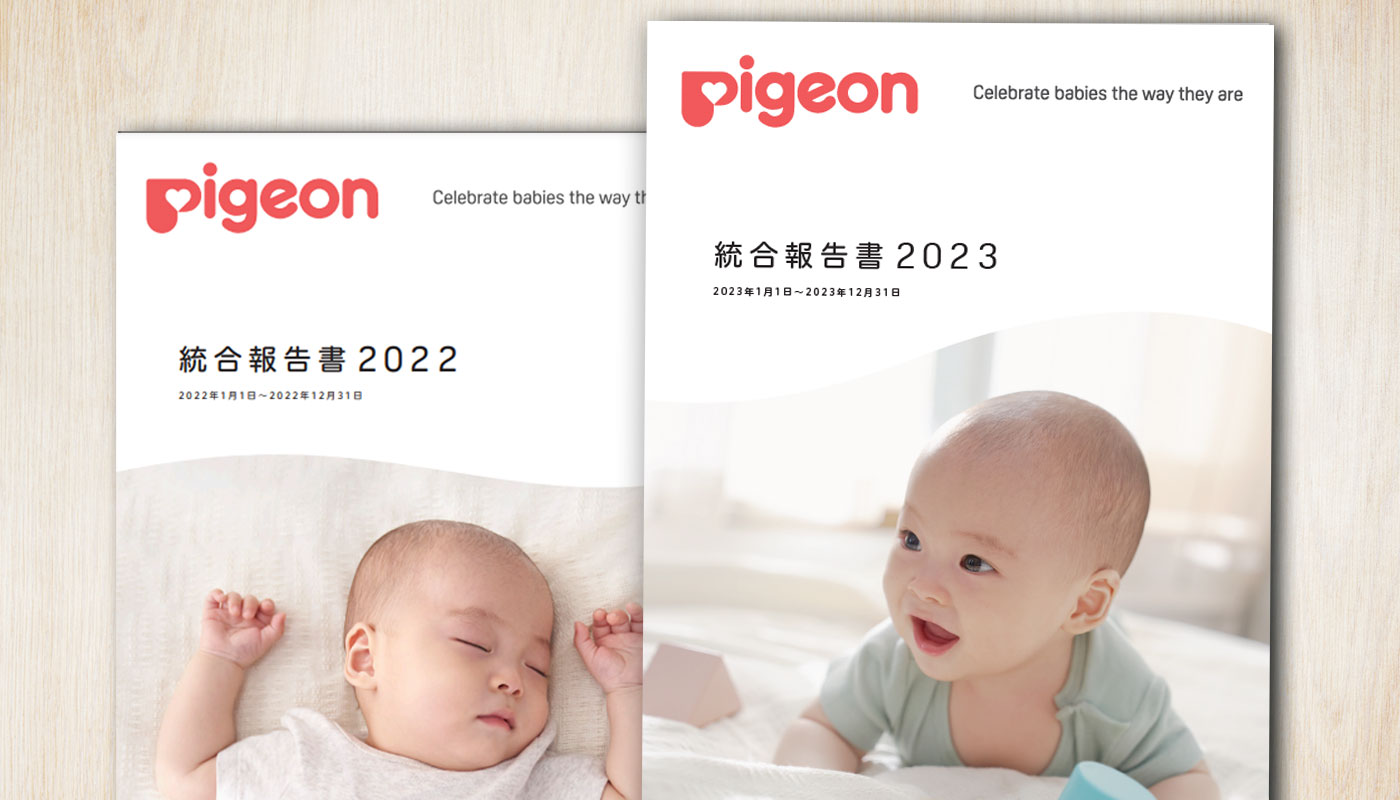Pigeon Green Action Plan
Reducing our Environmental Impact
Pigeon Formulates the Pigeon Green Action Plan to leave a rich Earth for the future of babies born tomorrow.
Under the Pigeon Green Action Plan, the Pigeon Group will focus on resolving the climate change issue, the plastics issue, and declining biodiversity, all of which are particularly relevant to the Group’s business activities, and strive to reduce its environmental impacts by setting medium- to long-term targets toward decarbonization, a circular society, and coexistence with nature.


Decarbonization
By 2050, the Pigeon Group will reduce its Scope 1 & 2 greenhouse gas emissions to net zero. As an intermediate step, by 2030, the Pigeon Group will reduce its Scope 1 & 2 greenhouse gas emissions by 50% (compared to FY2018) and promote initiatives such as installing solar panels, purchasing renewable energy (electricity), and reducing its energy use by switching to LED lighting and making other energy-saving changes at its facilities. The Pigeon Group also began calculating its Scope 3 greenhouse gas emissions in 2021 to establish science-based targets and reduce its value-chain emissions strategically.
Mid-term Targets
| 2050 | Scope 1 & 2 GHG emissions: Net Zero |
|---|---|
| 2030 | Scope 1 & 2 GHG emissions: 50% reduction (compared to FY2018) Scope 3 GHG emissions: Reductions with Science-Based Targets (to be finalized) |
Circular society
Global plastic production continues to increase, and much of the Pigeon Group’s product packaging uses plastic as well. In order to achieve a sustainable society, the Pigeon Group will begin watching over products for their whole lifetime by promoting circular monozukuri (manufacturing). By 2030, 50% by weight of the materials used in the Pigeon Group’s packaging will be either plant-derived or recycled. Additionally, by the same year, all of Pigeon’s packaging will be reusable, recyclable, and/or compostable by design.
Mid-term Targets
| 2030 | Plant-derived or recycled materials in packaging: 50% by weight |
|---|---|
| 2030 | Reusable/recyclable/compostable packaging: 100% |
Coexistence with nature
Due to illegal tree felling and other factors, the world’s forested surface is shrinking. Destroying forests not only robs living beings of their homes, it has a major impact on natural hazards caused by water and soil degradation as well as climate change. At Pigeon, we promote the adoption of forest-certified paper that uses timber from responsibly managed forests as its raw material, as well as recycled paper.
The skincare, washing, and cleaning products manufactured and sold by the Pigeon Group include components manufactured from palm oil and palm kernel oil among their raw materials. To encourage the sustainable use of palm oil, in December 2020 Pigeon became an ordinary member of the Roundtable on Sustainable Palm Oil (RSPO), an NPO established to help conserve tropical rainforests and biodiversity by promoting the production and use of sustainable palm oil. Moving forward, the Pigeon Group will increase the use of RSPO-certified palm oil in the skincare, washing, and cleaning products it manufactures.
Mid-term Targets
| 2030 | Sustainable paper usage rate in packaging: 100% |
|---|---|
| 2030 | RSPO-certified sustainable palm oil usage rate in Pigeon-manufactured skincare/washing/cleaning products: 100%(including RSPO Credits)* |
* The book and claim (B&C) method supports certified palm (kernel) oil production by allowing end users to purchase credits issued based on the amount of palm (kernel) oil produced by RSPO-certified producers.
- Home
- Sustainability
- Reducing our Environmental Impact
- Pigeon Green Action Plan



